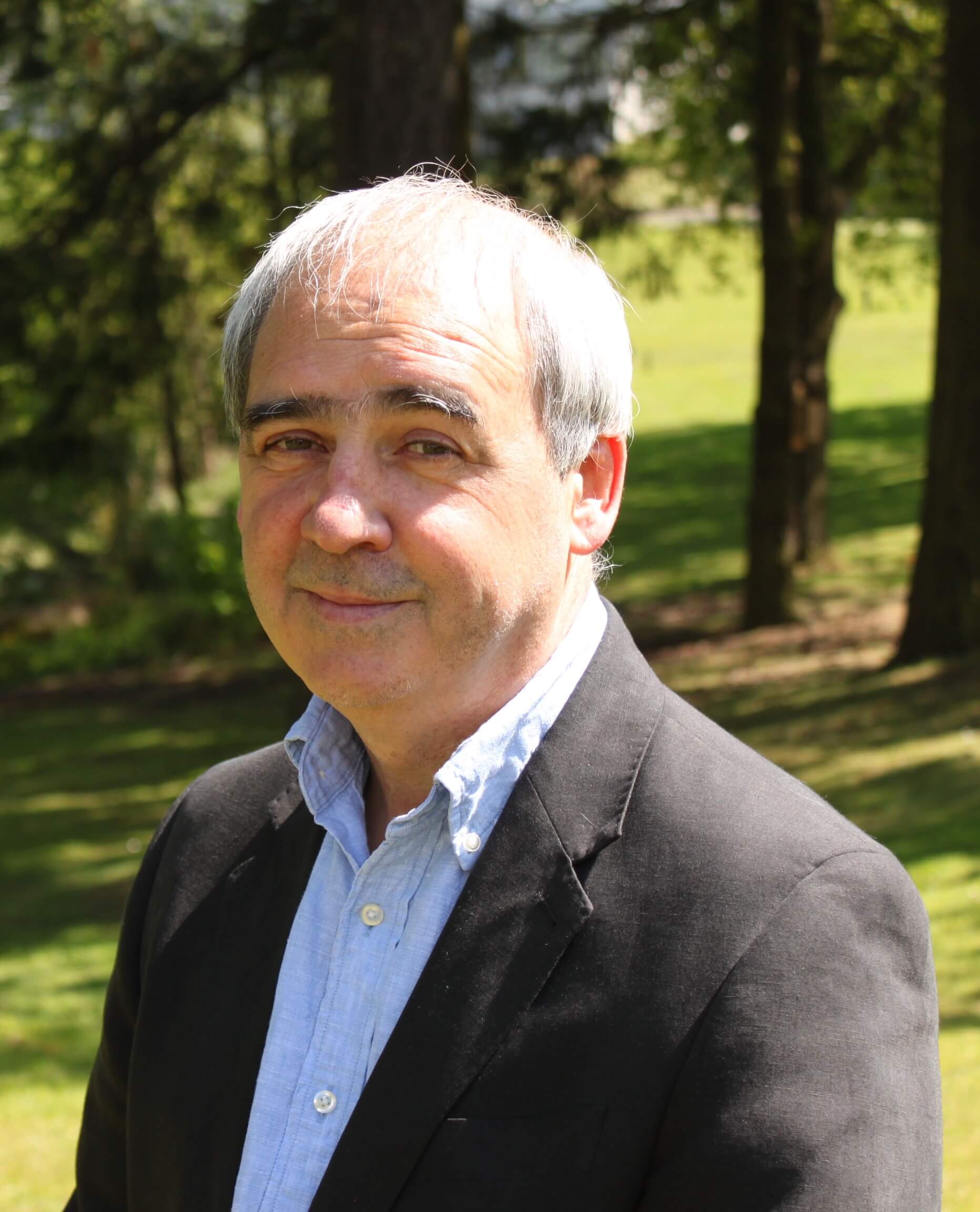A new landmark study conducted by the University of Stirling will empower policymakers to improve the lives of Scotland’s older population by providing them with a comprehensive insight into the economic, health and social circumstances of people over 50.

Professor David Bell leads the Healthy Ageing in Scotland study.
The Healthy Ageing in Scotland (HAGIS) study has analysed the data of 1,000 Scots over the age of 50 – providing a wealth of information that will inform, influence and support the debate around how the country tackles problems posed by its ageing population.
The initial findings and benefits of the pioneering research – the first of its kind in Scotland –will be revealed and discussed at a special event in Edinburgh today (Friday 8 December). The Stirling team are seeking funding which will allow the study’s numbers to be increased to 7,000, with participants re-interviewed every two years.

Dr Elaine Douglas has worked on the £500,000 study alongside Professor David Bell.
HAGIS has joined the Gateway to Global Aging – a group of studies that now covers more than two-thirds of the world’s population aged 50+. These are all based on the US Health and Retirement Study (HRS). Their role is to influence and inform public policy relating to quality of life among older people. HAGIS therefore provides a benchmark that, for the first time, enables the comparison of over 50s in Scotland with those in other countries.
Participants provide information on their wellbeing, finances, health, relationships and activities. Most participants gave permission to link this data with their health, pension, benefits and tax records.
Professor David Bell said “HAGIS is an important resource for academics and policymakers seeking to understand the challenges faced by older people in Scotland. Its links to similar studies worldwide and to administrative records in Scotland make it a more powerful tool for understanding these challenges than any other survey currently available. It comes at a time when the Scottish Government is acquiring new powers, many of which affect older people.”
Initial analysis of the data has revealed a number of findings, spanning a number of policy areas, including:
Employment
Sixty-eight per cent of men aged between 50 and 64 are working and around 20 per cent are retired, with the remainder unemployed, unable to work through illness or disability, caring or looking after the family home. Just 18 per cent of individuals who identify themselves as being in poor health are in work.
Comparing the results with the participants’ level of education, the team found that among those aged less than 65, those with the lowest levels of education are most likely to be out of the labour market (55%), while those with a degree are most likely to be retired (26%).
Social Security
The percentage of people with a “high” measure of disability increases from 11.9 per cent of the population to 48.8 per cent between the ages of 50-59 and 80+.
Just less than half of people who think their physical abilities are substantially limited are not receiving either Attendance Allowance or Disability Living Allowance. These benefits are the largest of those being transferred to the Scottish Government from the UK Department of Work and Pensions.
Life expectancy and preparedness for retirement
Respondents typically underestimate their life expectancy, with women underestimating their life expectancy more than men.
People in more affluent areas are more likely to underestimate their life expectancy. Someone living in the most affluent area of Scotland typically underestimates their life expectancy by 2.4 years on average, compared to someone in the most deprived.
Almost 40 per cent expect to retire before the State Pension Age (SPA), 30 per cent are planning to retire at that point, while 30 per cent believe they will continue working past SPA.
Forty-two per cent of respondents do not have any pension arrangements other than state provision, while 49 per cent are enrolled in an occupation pension scheme. Twenty-three per cent have a private pension and 14 per cent have both an occupational and a private pension.
Health
Single men are significantly less likely to participate in bowel cancer screening (57.6%), compared to those who live with a partner (79.5%).
Increasing the participation rate of single males to the Scottish average would save around 3.2 lives per year, the team said.
Partners
The initial findings are being revealed at Surgeon’s Hall, Edinburgh. The audience includes partners from other international ageing studies.
One of today’s speakers, Professor Jim Smith of the RAND Corporation, Santa Monica, California, who is an advisor to the HRS surveys around the world, said: “HAGIS is a well-crafted jewel and essential to Scotland as it adjusts to population ageing.”
Launched in July 2015 by Professor Bell and Research Fellow Dr Elaine Douglas, the £500,000 study is funded by the US-based National Institute of Aging and Nuffield Foundation.
Background information
Media enquiries to Greg Christison, Communications Officer, on 01786 466 687 or greg.christison@stir.ac.uk

